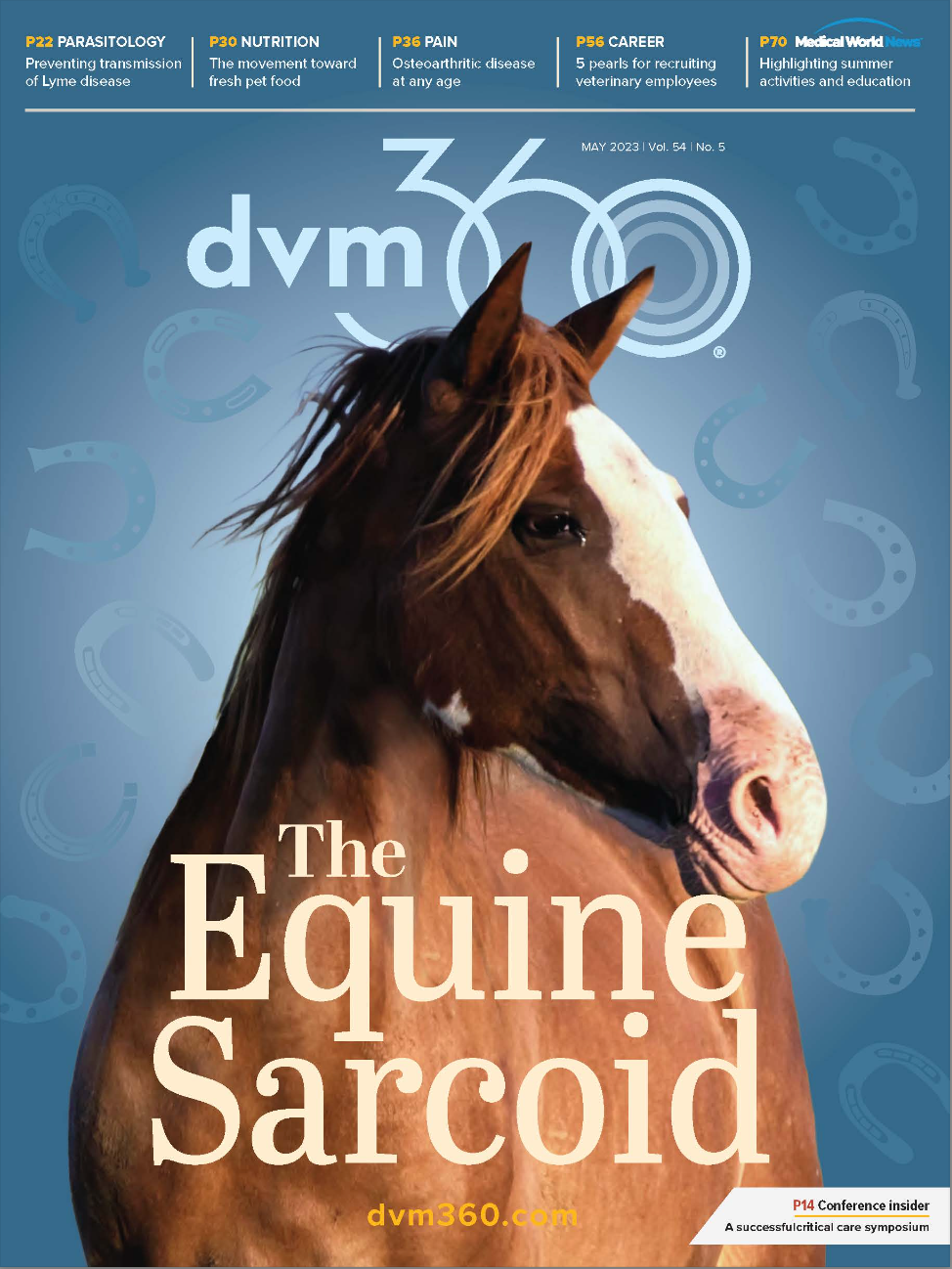Notes from the border: The war in Ukraine
A veterinarian describes his work with refugee pets at Isaccea Border Station in Romania
Photos courtesy of Jon Geller, DVM, DABVP emeritus
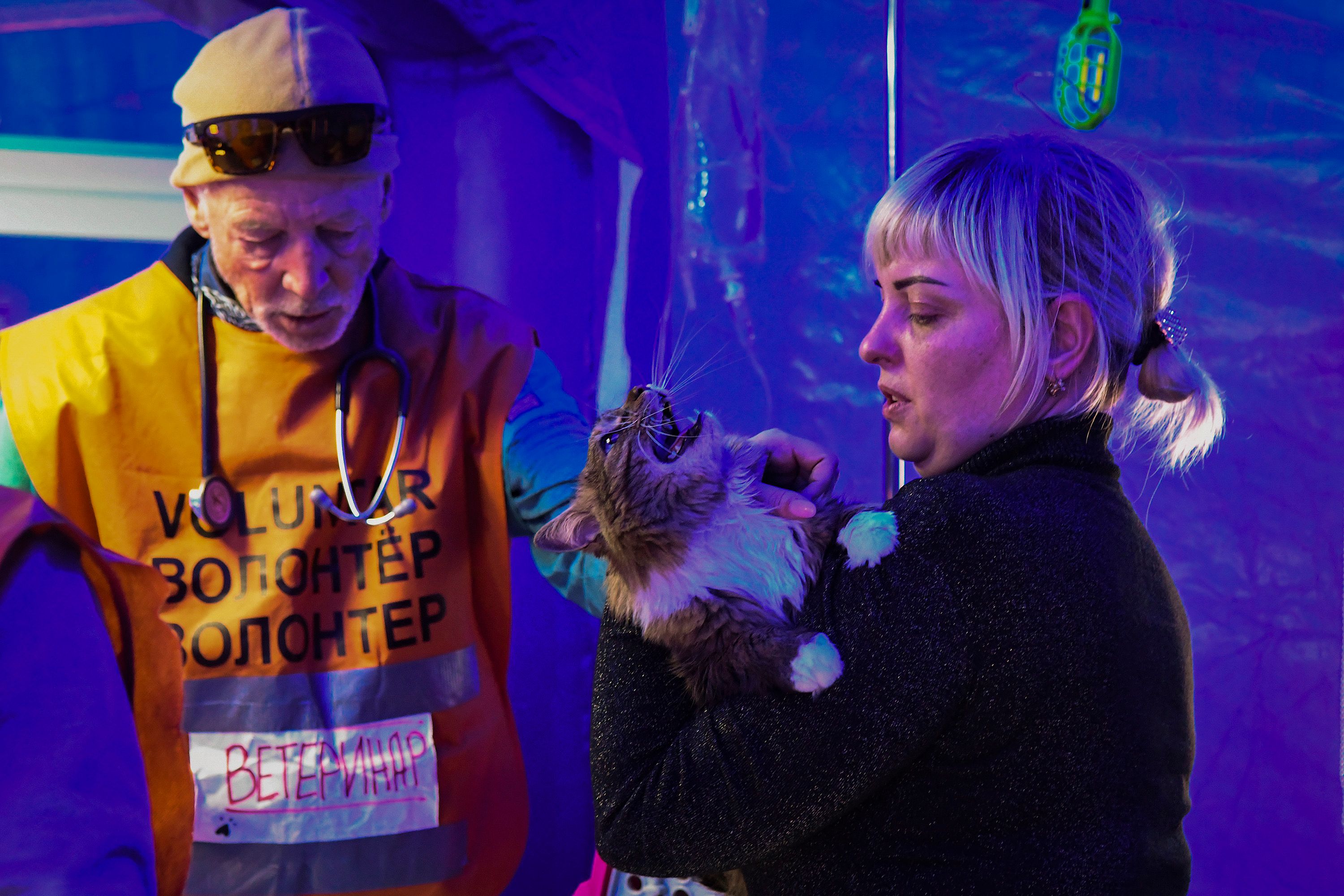
I pull my neck scarf tighter as icy wind travels across the Danube River from Ukraine. The stethoscope dangling around my neck is cold against my skin and I can hear the voices of women and children rolling their suitcases up the concrete ramp. They disembark from the opendeck ferry that carried them across the river to Isaccea, Romania. They are some of the millions of Ukrainian refugees fleeing the Russian invasion, traveling with dogs on leashes and cats in carriers.
In our blue tent, where our team is known as the Blue Vet Group, refugees wait with their pets. We examine, vaccinate, deworm, microchip, provide any needed care, and issue European Union pet passports so they can continue their travels westward. Wide-eyed children watch as we peer into their pets’ eyes and mouths and poke their cats and dogs with needles and chips. The tent on the river is a magical place where an international group of volunteers has gathered to help.
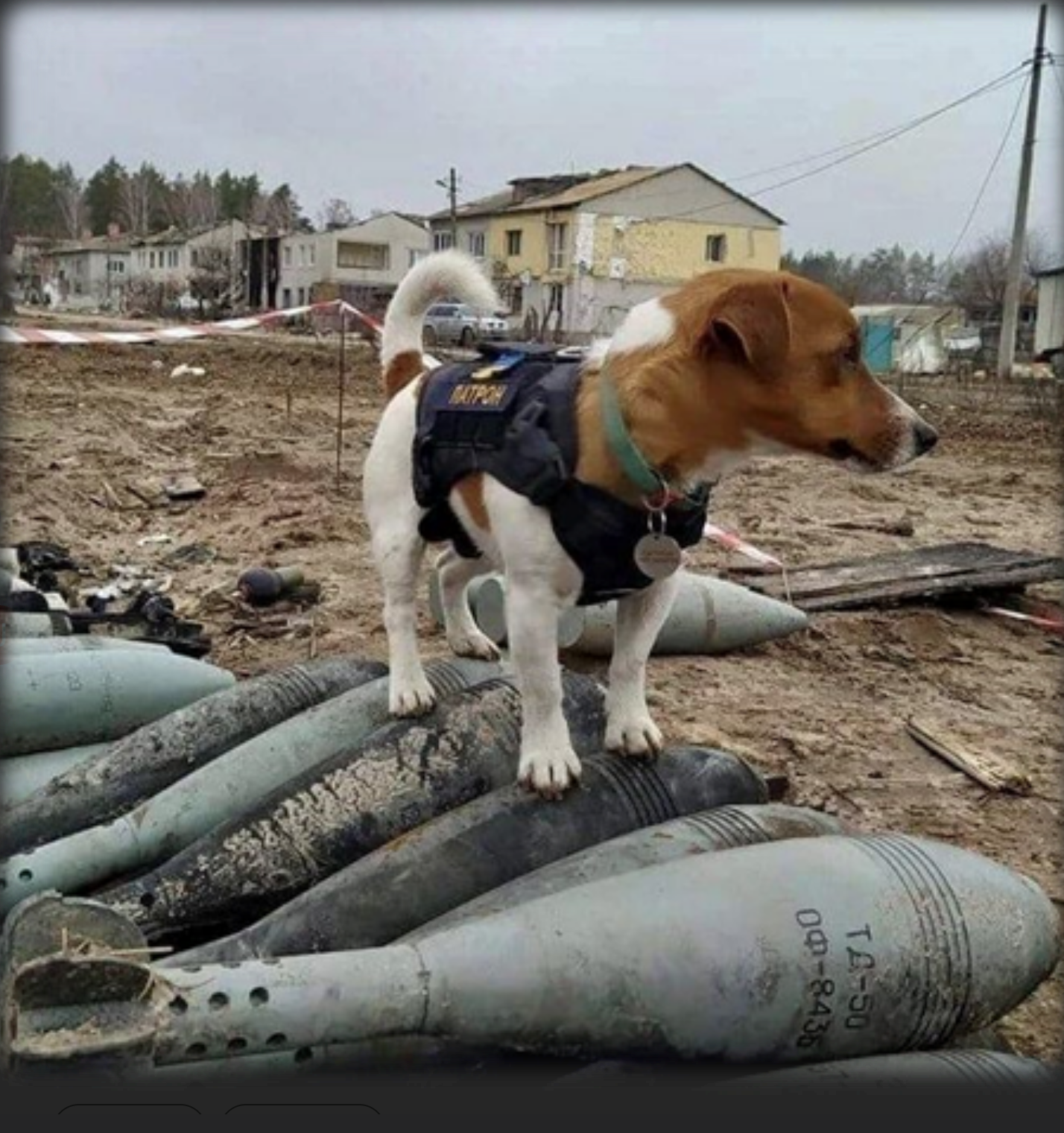
It was mostly happenstance that I was lucky enough to find myself in position to help the refugees’ pets. After I learned of the Russian invasion, I knew I had to go there. I Googled veterinarians in several border crossings in Ukraine and found 2 Romanian veterinarians near the village of Isaccea. Fortunately, they spoke a little English and responded to my Facebook request to connect. When they asked me what I would do if I came over, I told them I didn’t know but they responded, “Come on over and we will figure it out.”
Alex, one of the Romanian veterinarians, picked me up at the Bucharest airport, 5 hours from the border, and I stayed at his house until I could get settled at a church hostel nearby. We went to the border station to check things out and met Alex’s neighbor, who oversaw the border station and let us take a large blue tent to use as our clinic. Alex brought down an exam table, a small refrigerator, an IV stand, and a few other things, and we were in business.
I had 3 students from the veterinary school in Zagreb, Croatia, who were eager to learn and help. We stayed in a Russian Orthodox Church hostel with a group of Ukraine refugees, and the food was tasty and interesting. Even more amazing was the hearty fare served at the border station by World Central Kitchen, and the cauldrons of stews served by an impromptu Greek café. Sometimes at night, Alex would take us to his house and we would listen to him DJ on his electronic sound system.
The ferry at the Isaccea border station came about every 2 hours with a group of refugees and we would mingle with them to see who had pets. Most of the refugees were women and children, because men younger than 50 years must stay and fight. Because of the busy nature of the work, my Romanian colleagues authorized me to work on their behalf to help process paperwork and pet passports while they worked at their practices. They came multiple times a day to check on things and enjoy the international atmosphere at the border. As the only American, I was very reliant on my multilingual veterinary students and translators to communicate but I enjoyed interacting with the border guards through Google Translate.
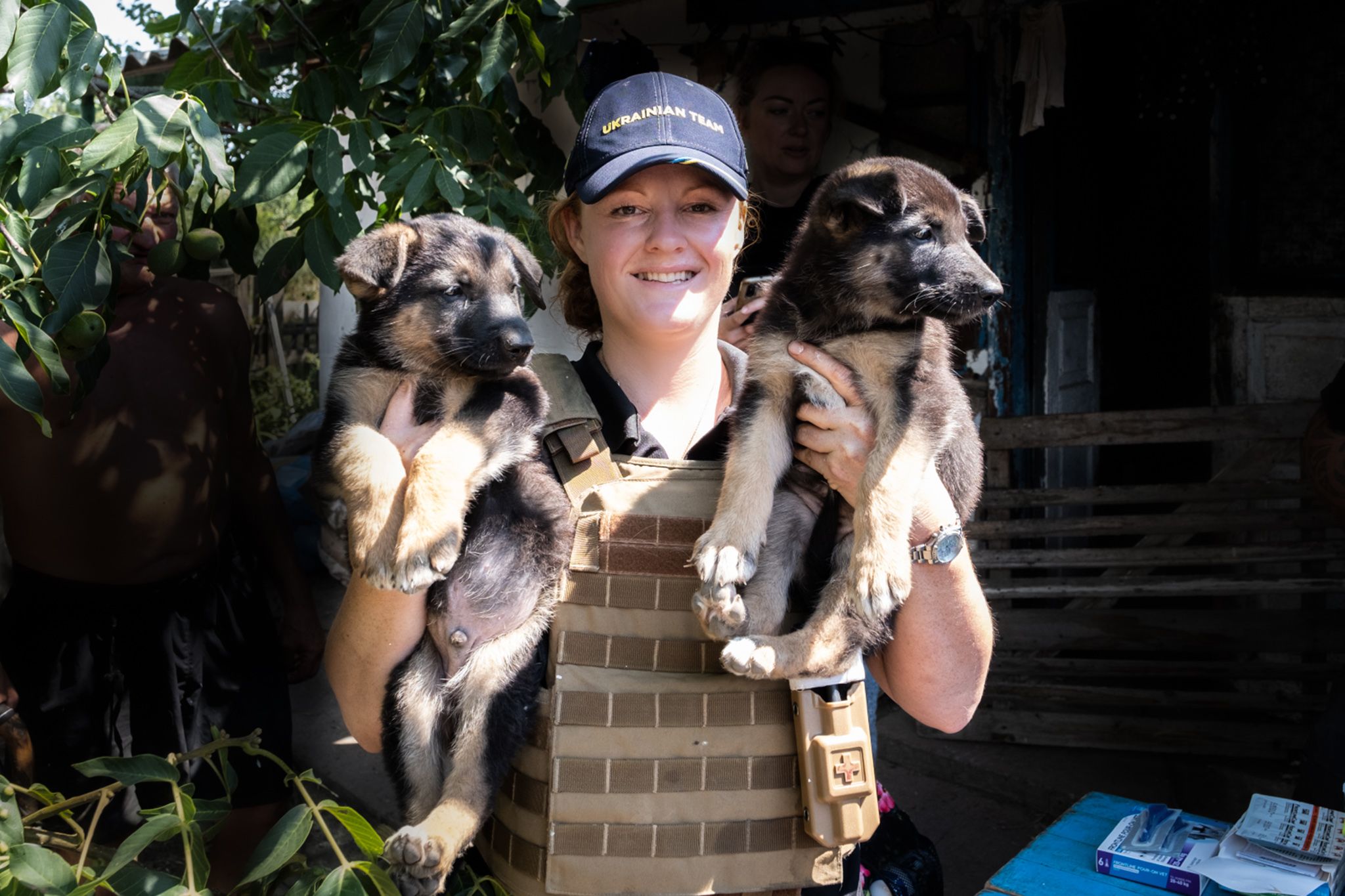
Rabies vaccination was crucial because of high incidence of rabies in Ukraine and many pets were not vaccinated. Also because of the high rabies incidence, importation regulations are tight. In the United States, previous evidence of vaccination is required, along with a valid rabies titer and a 28-day hold at an approved US border station.
After I left the border station in late March 2022, teams of US veterinary personnel came to continue the efforts. In July, the flow of refugees reversed when many were tired of being away from home. This caused the disbandment of our Blue Tent Group after we cared for over 800 pets. Now the focus shifted to within Ukraine where the number of street animals rose exponentially when overwhelmed shelters released pets to the streets and owners had to leave pets behind. Large amounts of pet food were shipped into Ukraine but needed to be redistributed. Several veterinarians from our team ventured into Ukraine, delivering supplies to local veterinarians and zoos. With the help of a zoo veterinarian in California, we brought over a concoction of pain medications including firocoxib and gabapentin for a lame elephant at the Odessa Zoo. One of our veterinarians stayed at a small seaside hotel in Odessa and swam in the Black Sea when the guards headed down the (heavily mined) beach on their patrols.
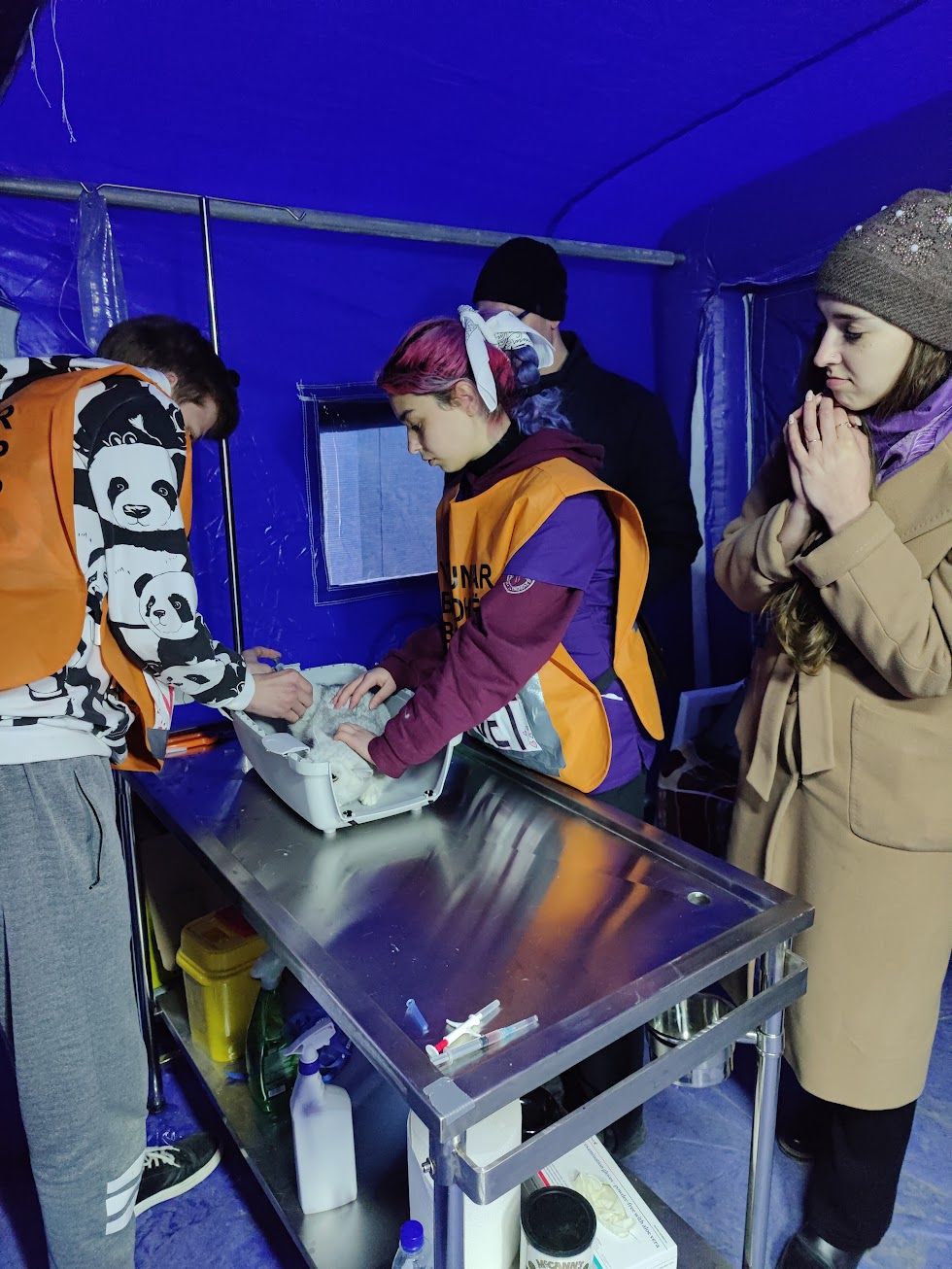
As the pet crisis in Ukraine worsens, veterinary help is badly needed. The Street Dog Coalition partnered with Gemma Campling, BVMed Sci (HONS), BVM, BVS, MRCVS, MCVSZ, of Worldwide Vets. With the help of donors, including a grant from the American Veterinary Medical Foundation Emergency Relief Fund, a large mobile veterinary clinic was purchased and built in Phoenix, Arizona, hauled to the Port of Galveston, Texas, and shipped to Southampton, England, where Campling is outfitting it and driving it under the English Channel to Ukraine. It will move to different locations behind the front lines with the goal of helping 10,000 pets over the next year. This will include treating injuries, providing preventive care, and performing sterilization surgeries. A rotating team of veterinary volunteers will be invited to join, along with Ukrainian veterinarians and technicians, who will get some additional training so the effort can continue as long as needed.
The veterinary profession has taken this opportunity to engage in the world in a way never seen before, during a wartime crisis that has affected so many pets and humans. Through unbridled collaboration, we can continue our efforts in these unprecedented times.
Jon Geller, DVM, DABVP emeritus, graduated from Colorado State University College of Veterinary Medicine in 1995. He then practiced as a house call veterinarian or several years before embarking on a 20-year career as an emergency clinician in Colorado. During that time, Geller and his partners started up 4 emergency clinics and he became board-certified as veterinary practitioner in canine and feline medicine in 2010. After seeing a homeless man and his pit bull on a bridge in 2015, he founded The Street Dog Coalition, a nonprofit charity that provides free medical care, and other related services, to pets of owners at risk of, or experiencing homelessness.
Geller was named Veterinarian of the Year by the Colorado Veterinary Medical Association for 2019. In the spirit of unbridled learning, he is currently enrolled as an MPH candidate at the University of Minnesota. He received the ASPCA Henry Bergh Humane Award for 2022, and also is an Instructor in the Colorado School of Public Health teaching a class on ‘Homelessness in America.’
